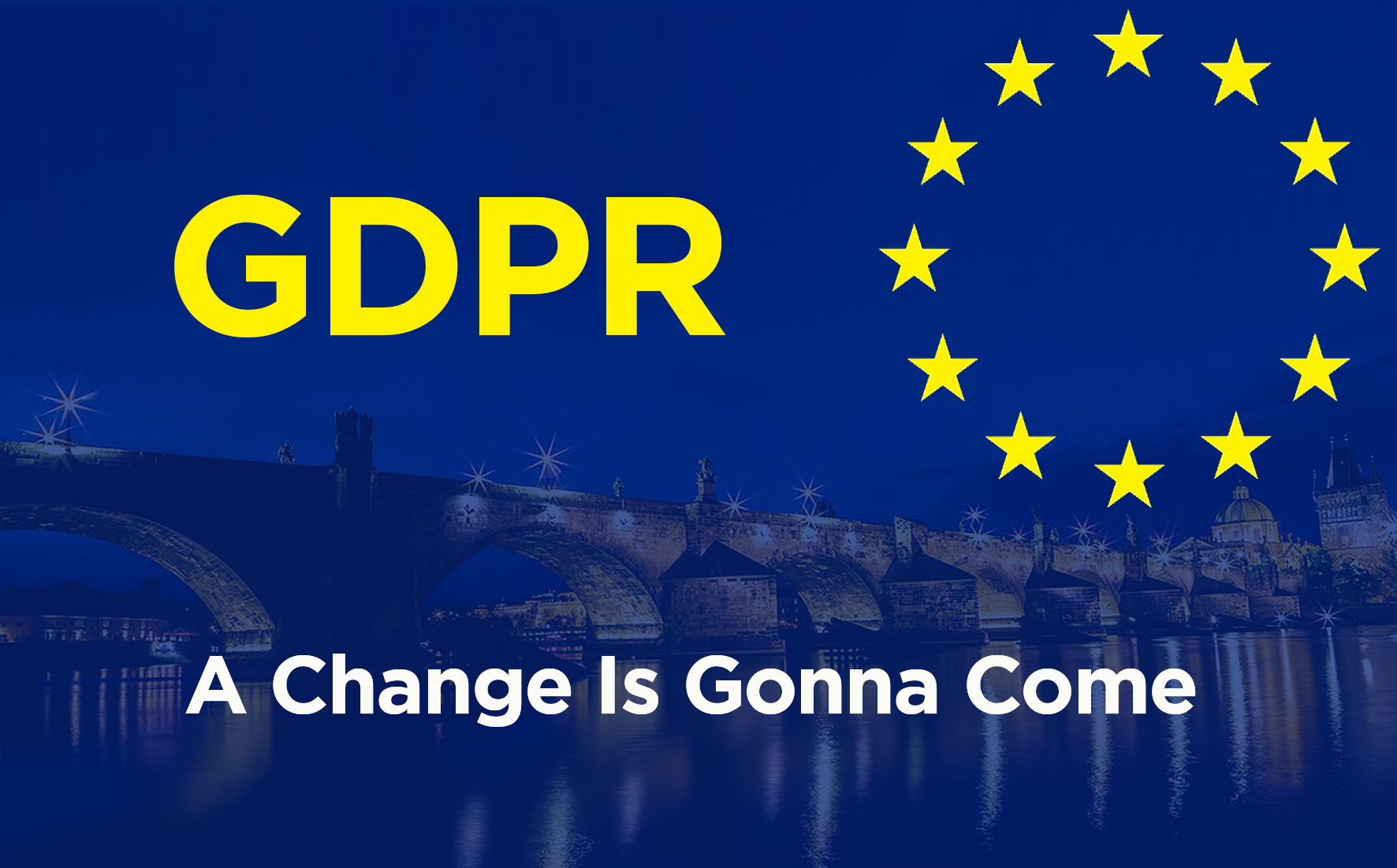
14 Mar GDPR: A Change Is Gonna Come
For all the noise around GDPR, the deadline for compliance is now only three months away. This fact is driving stories such as the recent news that Drawbridge is exiting their European business, as well as TapAd ceasing to provide media services earlier this year.
At a high level, all companies within the value chain, come May 25th, will need to provide consumers with opt-in consent to using their data and ensure they can provide the following:
- The right to be informed – or understand how their data is being used
- The right of access – of their personal data and supplementary information
- The right to rectification – to have their data corrected if inaccurate or incomplete
- The right to erasure – otherwise known as the right to be forgotten, enabling consumers to opt-out of having their personal data used and for it to be deleted
- The right to restrict processing – data may be stored, but not acted upon
- The right to data portability – individuals may obtain and reuse their personal data for their own purposes across different services
- The right to object – including objection to processing, to direct marketing or to profiling
This is obviously a challenge for many adtech vendors in the middle of the value chain who don’t have a direct relationship with consumers. It will also advantage Google and Facebook, who do have those direct, deep relationships, one of the unintended consequences of GDPR.
The advertising industry has started a healthy debate on what this means for their businesses – agencies and trading desks are getting smarter about the questions they ask to protect their clients; platforms that buy advertising are being re-engineered to be compliant; vendors that serve ads are changing processes to capture consent; and publishers and media owners are now rolling out enhanced consent notices for consumers.
However, when the dust settles there will be a radically changed market. Everyone now realises that a reliance on the programmatic bidstream to harvest data is over. No longer can vendors hoover up vast amounts of data on consumers and relentlessly profile them. No longer will publishers tolerate a complicated chain of middlemen profiting from personal data. And no longer will EU regulators stand aside whilst the industry self-regulates.
We think that there is a new order coming and that smart publishers will use this to their advantage, to regain control. The consumer data – in particular location data – that publishers gather is now too valuable to hand over to an adtech vendor in a trade that returns very little to the publisher.
Far better to split the location data from the rest of the data needed for advertising, and to monetise it properly. With the right consent notices, the right use case in the first place to obtain the relevant permissions, and the right scale, publishers should be reclaiming location data from vendors. They should be demanding a fair price for it, in a transparent manner, with partners who are properly incentivised to maintain the integrity of the data.
Brands will also benefit from this new market. With location-based advertising accounting for over 42% of a £5bn+ market, many are still not aware how much location-based media is fraudulent.
Unscrupulous developers know that they can attract a premium for their ad inventory if a lat/long is appended, so programmatic exchanges are still rife with impressions embellished with centroids, reverse IP lookups, and other techniques to fake a location. As eMarketer revealed in their recent ‘Location Intelligence 2018’ report, Programmatic-derived location data lacks both accuracy and precision. We believe that GDPR is going to have a profound impact on the global adtech ecosystem. The infamous Lumascape is going to look very different in 12 months time.
This is not however a position of doom-and-gloom, as some commentators would suggest. We believe this is a sign of the maturation of our industry. It will no doubt shake out some players – which is not necessarily a bad thing. What will be left is a robust marketplace, containing businesses who are transparent, add value, and work towards a healthy and vibrant industry.
This can only be a good thing for publisher, brands, technology companies, and consumers.
For further information contact myself or
Dan Francis, CSO, Location Sciences


